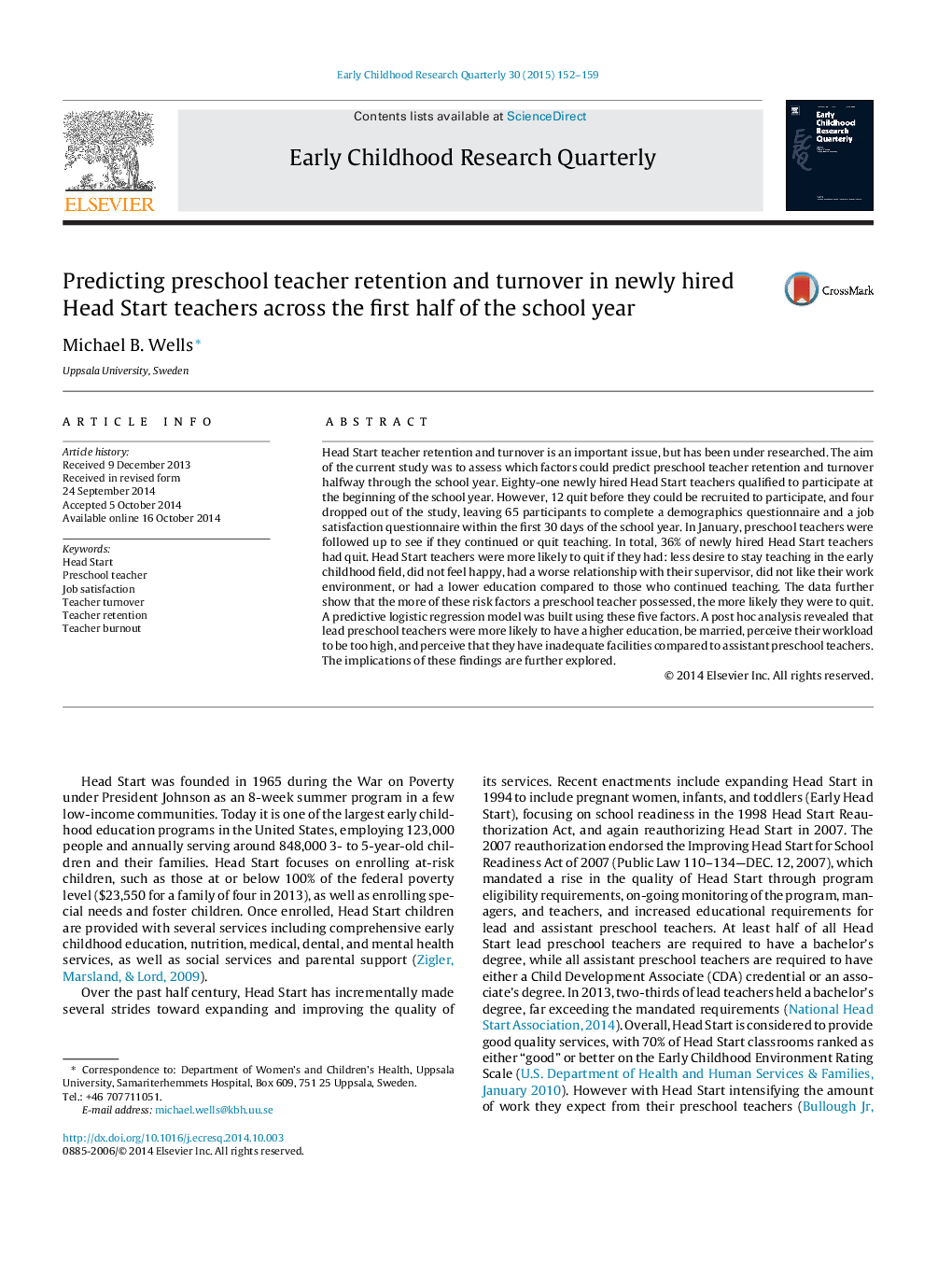| Article ID | Journal | Published Year | Pages | File Type |
|---|---|---|---|---|
| 10313499 | Early Childhood Research Quarterly | 2015 | 8 Pages |
Abstract
Head Start teacher retention and turnover is an important issue, but has been under researched. The aim of the current study was to assess which factors could predict preschool teacher retention and turnover halfway through the school year. Eighty-one newly hired Head Start teachers qualified to participate at the beginning of the school year. However, 12 quit before they could be recruited to participate, and four dropped out of the study, leaving 65 participants to complete a demographics questionnaire and a job satisfaction questionnaire within the first 30 days of the school year. In January, preschool teachers were followed up to see if they continued or quit teaching. In total, 36% of newly hired Head Start teachers had quit. Head Start teachers were more likely to quit if they had: less desire to stay teaching in the early childhood field, did not feel happy, had a worse relationship with their supervisor, did not like their work environment, or had a lower education compared to those who continued teaching. The data further show that the more of these risk factors a preschool teacher possessed, the more likely they were to quit. A predictive logistic regression model was built using these five factors. A post hoc analysis revealed that lead preschool teachers were more likely to have a higher education, be married, perceive their workload to be too high, and perceive that they have inadequate facilities compared to assistant preschool teachers. The implications of these findings are further explored.
Keywords
Related Topics
Social Sciences and Humanities
Psychology
Applied Psychology
Authors
Michael B. Wells,
